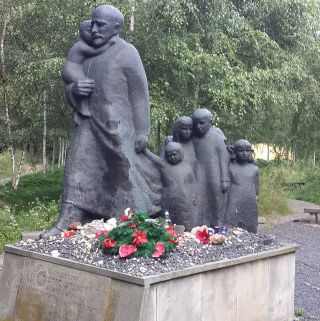Burnout
A Man Who Gave His Life to Care for Children
Janusz Korczak offers inspiration to all pediatric specialists and parents.
Posted January 24, 2021

Janusz Korczak reminds us that, in the care of children, courage can be every bit as important as understanding and compassion. Born in Warsaw in 1879, Korczak studied medicine and created an orphanage there. Among his innovations were treating children as citizens and encouraging them to create their own courts and newspaper.
He published works for adults about caring for children, including How to Love a Child. He rejected the view that children are uncivilized brutes and urged readers to take them seriously as human beings in their own right. He wrote, "They should be allowed to grow into whoever they are meant to be."
Of Jewish heritage, Korczak fought back against the antisemitism of Poland's Nazi occupiers, refusing to wear an armband bearing the Star of David and instead insisting on wearing the great coat he had acquired as an officer in the Polish military.
Yet when the Warsaw ghetto opened, Korczak had no choice but to move his orphanage there. A famous man, he could have fled to safety, but he refused to abandon his children. At their new location, they continued to put on plays and concerts.
In August 1942, soldiers arrived to collect the nearly 200 children and transport them to an extermination camp. Again, Korczak remained at their side. In fact, he had to persuade the Germans to take him, too. He told the children that they were going to a better place, doing what he could to prevent terror from driving away their happiness.
In his book, The Pianist, Wladyslaw Szpilman imagines what must have happened when the train arrived in Treblinka: "I am sure that even in the gas chamber, as the Cyclon B gas was stifling childish throats and striking terror instead of hope into orphans' hearts, the old doctor must have whispered with one last effort, 'It's all right children, it will be all right.'"
Today there is an empty tomb in one of Warsaw's cemeteries, bearing a sculpture of Korczak with a procession of children. The children are in rows, each clutching a bag and a favorite toy. And in front is Korczak, holding a child in his arm and the hand of another.
Those who care for children today may not face choices quite as stark as those of Korczak, but every pediatric specialist enjoys opportunities to serve and advocate for children. Korczak's legacy reminds us never to forget that courage can be one of our most precious resources.


